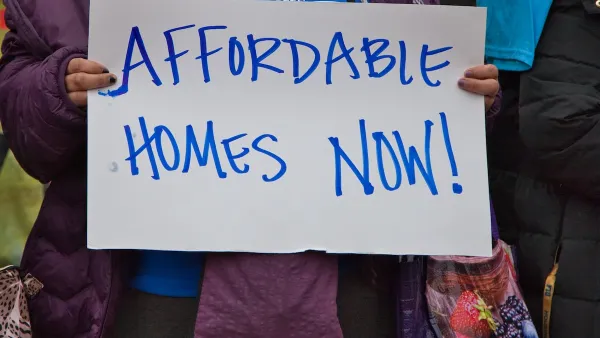Managers of affordable housing at the deadly northern end of Ida's path review what worked, what didn't, and what we might need to abandon altogether.

When the remnants of Hurricane Ida struck the Northeast in early September, the region was inundated by devastating flash floods. Across four states, the storm killed more than 40 people, caused up to $24 billion in property damage, and knocked out power to 150,000 homes. New Jersey and New York City were hit particularly hard—30 New Jersey residents drowned in their homes and vehicles, and in NYC, 13 residents died, most drowning in their basement apartments.
The storm exceeded expectations for a 500- to 1,000-year rainfall event, according to researchers at Cornell’s Northeast Region Climate Center. The event’s improbability helps to explain why the region’s infrastructure was so ill-prepared for the rapid influx of water. But extreme storms like Ida will not be so rare in the future, and our cities, along with their affordable housing stock, will need to adapt.
A New York City panel on climate change forecasts that, by 2050, what is now classified as a “100-year flood” will occur three times more often in New York City. Sea levels will rise by 30 inches, and there will be up to five days each year with more than 2 inches of precipitation. The panel also expects the number of days that top 90 degrees Fahrenheit in the city to triple by 2050, posing public health risks from extreme heat.
The climate crisis presents an existential threat the world over, and it’s bumping up against the affordable housing crisis in expensive metropolitan areas like New York City. The city’s population is projected to grow from 8.8 million residents to 9.2 million by 2050. That growth is expected to concentrate in the Bronx and Brooklyn, two boroughs that saw massive flooding during Ida.
As demand for housing rises, preventing climate-related disasters from eroding the already-scarce supply of affordable housing will be critical, says Laurie Schoeman, national director of resilience and disaster recovery at Enterprise Community Partners (Enterprise), a nonprofit that works to address the housing affordability crisis through policy, programming, and capital investment.
“A lot of existing affordable housing is exposed to extreme climate risk, in flood zones, in areas that are apt to burn, or in drought zones,” says Schoeman. “These units are in the direct path of climate change and they’re facing extinction.”
So, how can we protect our existing affordable housing stock from more frequent and extreme weather events, and build new housing that can withstand the effects of a warming climate? And what lessons can Ida offer to affordable housing managers and owners whose properties are at risk?
A Shifting Picture of Risk
As storms like Ida become more frequent, building owners and managers may be forced to ...
FULL STORY: After Ida, How Can Affordable Housing Withstand Climate Impacts?

Analysis: Cybertruck Fatality Rate Far Exceeds That of Ford Pinto
The Tesla Cybertruck was recalled seven times last year.

National Parks Layoffs Will Cause Communities to Lose Billions
Thousands of essential park workers were laid off this week, just before the busy spring break season.

Retro-silient?: America’s First “Eco-burb,” The Woodlands Turns 50
A master-planned community north of Houston offers lessons on green infrastructure and resilient design, but falls short of its founder’s lofty affordability and walkability goals.

Test News Post 1
This is a summary

Analysis: Cybertruck Fatality Rate Far Exceeds That of Ford Pinto
The Tesla Cybertruck was recalled seven times last year.

Test News Headline 46
Test for the image on the front page.
Urban Design for Planners 1: Software Tools
This six-course series explores essential urban design concepts using open source software and equips planners with the tools they need to participate fully in the urban design process.
Planning for Universal Design
Learn the tools for implementing Universal Design in planning regulations.
EMC Planning Group, Inc.
Planetizen
Planetizen
Mpact (formerly Rail~Volution)
Great Falls Development Authority, Inc.
HUDs Office of Policy Development and Research
NYU Wagner Graduate School of Public Service




























